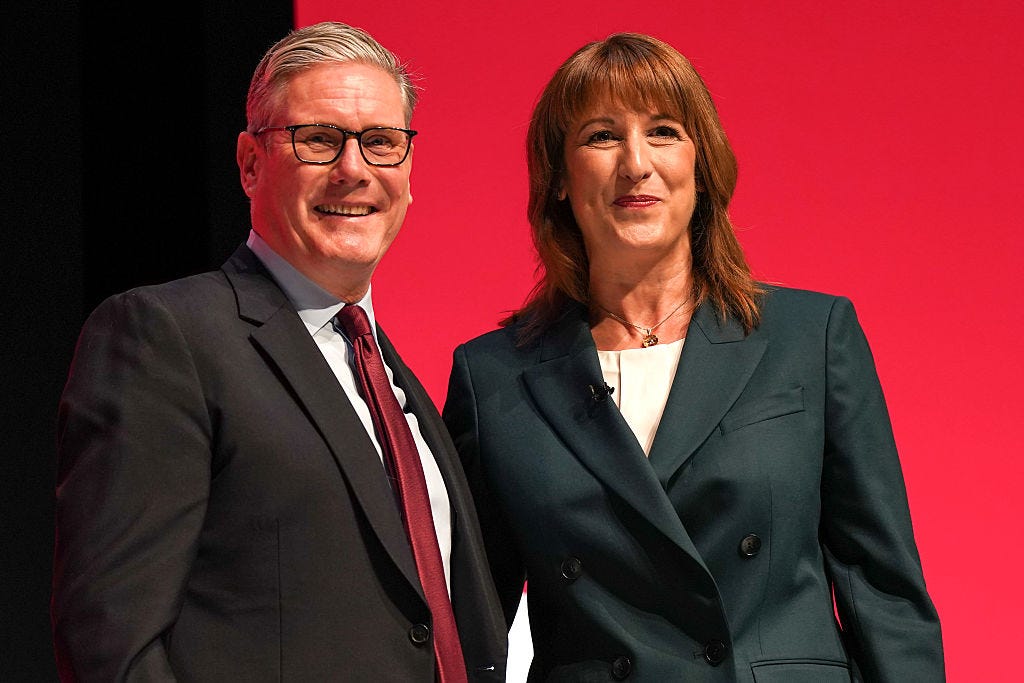When a government feels embattled, struggling in the polls, unpopular with its own MPs, rumours of leadership challenges swirling, the temptation is always to focus on immediate survival. This is usually self-defeating because it means putting off problems that blow up later. But psychologically it’s entirely understandable, and the symptoms will be recognised by anybody who has worked in government. Whatever dreams you might have had of long-term grand strategies and careful policy-making, you soon find yourself just trying to get through the day.
Now Labour conference is over, attention has turned to what promises to be an exceptionally tricky budget. On Friday Rachel Reeves received the Office of Budget Responsibility’s (OBR) first budget forecast and will now have a good idea of how much trouble she’s in. We don’t know quite how much money she’ll need to find to avoid breaking her fiscal rules but most forecasters think it will be between £20 and £40 billion. (See the footnote for a detailed breakdown).1
Whether the number is at the top or bottom of this range is within the OBR’s gift as it largely comes down to whether and by how much they downgrade their assumptions about productivity. This is where the role of the OBR gets unavoidably political. Their productivity assumptions have always been too optimistic and Labour MPs are already grumbling that a larger downgrade should have been made while the Tories were in power. Had that happened Jeremy Hunt would not have been able to make his pre-election tax cuts. This may lead the OBR to be fairly cautious in how much they downgrade now to avoid accusations of unfairness.
I’ve written before about the madness of this process and the way it distorts policy-making. But there’s nothing Reeves can do about that now. The precarious state of the bond markets and her own pre-election rhetoric about the OBR’s importance have boxed her in. So she is going to have to find a lot of money from somewhere. Most of it will come from tax rises, something the government has now acknowledged. Ministers may also want to make a few more positive announcements that come with a price tag to ameliorate the gloom.
There has been much speculation about which taxes will rise – and I will assess the options in this post. But it helps to frame this issue within a set of bigger strategic choices that would lead ministers in different directions. They all relate to whether they just want to get through the budget still standing, or see it as an opportunity to grab control of events, which would mean taking more risks.
So in the rest of this post I’m going to look at these key choices, then set out three possible scenarios for the budget, explain where I suspect the government will end up and why, and thus which taxes are most likely to rise as a result.
Keep reading with a 7-day free trial
Subscribe to Comment is Freed to keep reading this post and get 7 days of free access to the full post archives.


